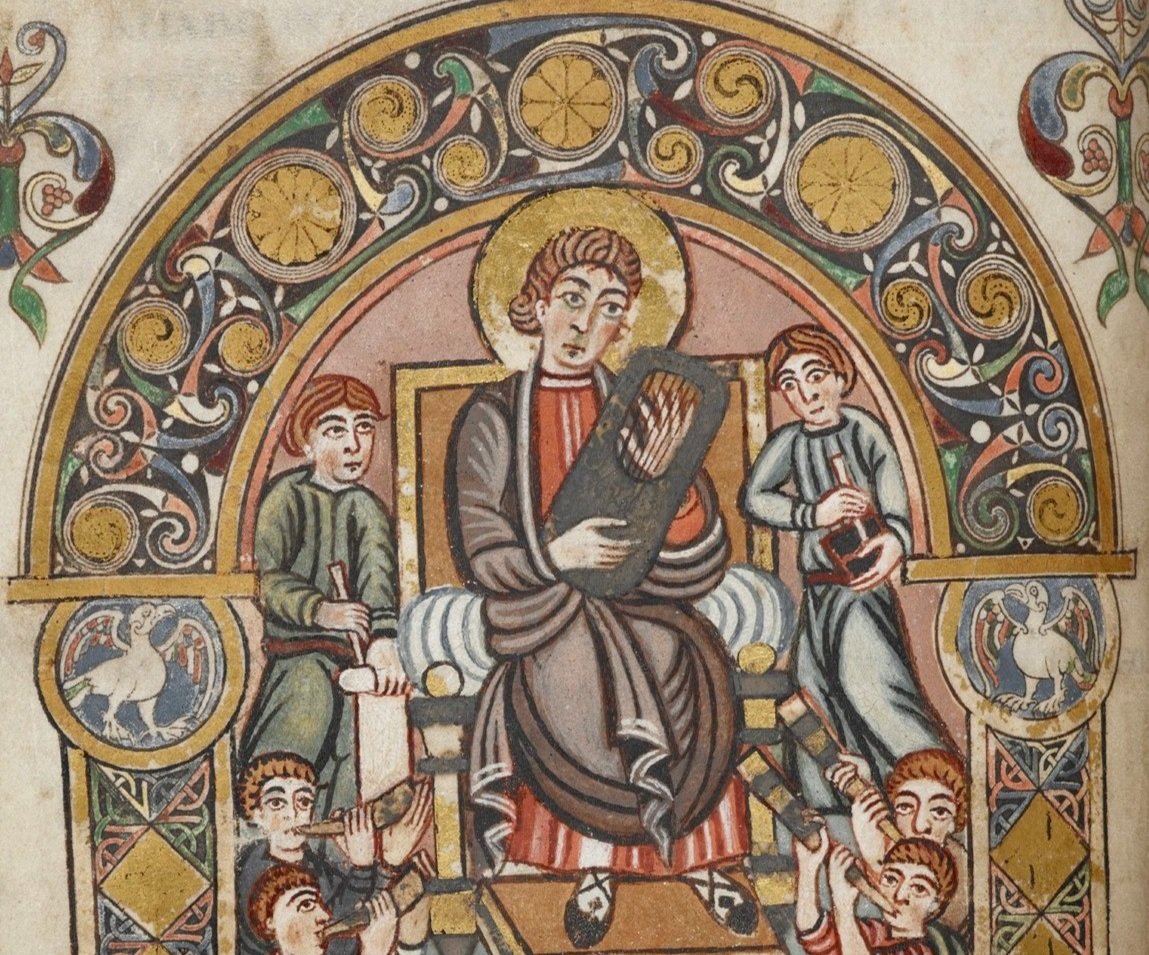Poetry of reinforcement
/From Tom Shippey’s preface to his new translation of Beowulf, in which he notes some of the strange poetic artifacts of the poem’s alliterative form and explores their deeper implications—both for the poem’s original audience and for us:
King David as Anglo-Saxon bard in the Vespasian Psalter
One may sum up by saying that, rather oddly, the words in the poem which receive the greatest sonic emphasis are sometimes the ones which carry the least information. They are there to help the poet with the first of his major aims: which is, one might say, to maintain the beat and the meter of his poetic lines.
This seems a rather humble aim to us, for our idea of poetry is that its wording should be exact, unexpected, provocative—to paraphrase the Savage in Aldous Huxley’s Brave New World, who has just been introduced to Shakespeare—words which make you feel like you'd sat on a pin. But we emphasize novelty, originality, surprise: and accordingly we fail to feel the power of reinforcement, familiarity, recognition. And it is this which satisfied the poet's second major aim: to express the ethos of a social group.
The modern vision of the poet as an outsider speaking truth to power and challenging norms is not only historically recent but a sadly narrow and limiting vision of what poetry does. It requires a posture of continuous antagonism to everything that grows both tedious and phony. The stereotype of the tiresome and hypocritical modernist poet and his or her predictably transgressive free verse exists for a reason.
But worse, this vision of poetry and the poet warps the interpretation of the great poetry of the past. People go galloping off in search of the hidden subversion in Homer or Beowulf and, having searched long enough and screwed their jeweler’s loupe of critical theory tightly enough into their eye, find it. Turns out these poets were just like the longhairs at the campus poetry slam. But, satisfied with presentist political interpretations, they miss what’s actually going on—and the chance to encounter people radically unlike themselves.
Good poetry can challenge, certainly. But I’d argue that the most effective and lasting prophetic verse challenges from within a culture—thus the entire power of the Old Testament prophets—rather than from some self-congratulatory political margin. But just as often, if not more so, good poetry reminds its audience of who they are. Remember, it says, This is us. This is what we love. This is what we must protect. And, with striking frequency, This is what we have lost. Consider the worlds in which the Iliad and Beowulf were composed and the poetry of reinforcement and shared love and loss makes much more sense.
Recovering the ability to “feel the power of reinforcement, familiarity, recognition” may prove a crucial part of the modern man’s great spiritual task.
Shippey has an online Beowulf “masterclass” coming up at the beginning of December. I’ve already signed up. It should be well worth your while if you’re interested in this period and its poetry. You can find information about the class here.





